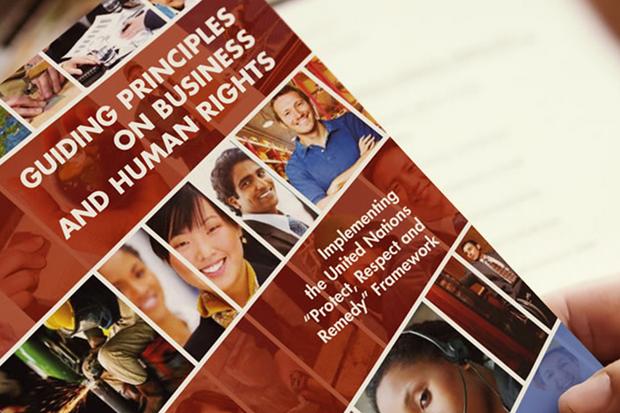
The UN Working Group on Business and Human Rights is leaving Thailand tomorrow after a low-key, 10-day visit. Members of the international group have consulted with the government and met business representatives. Their presence is as welcome as their ultimate goal. This is to show business operators that mistreatment of workers is not only illegal and unethical, but ultimately hurts their bottom line.
The group works under the aegis of the Office of the UN High Commissioner for Human Rights. Its mission is to encourage businesses worldwide to "promote good practices and lessons learned". It has an official motto: "Protect, Respect and Remedy". Some countries invite group members to visit, others reluctantly allow their presence. Inevitably, some resist or bar the group, but there is also a valuable lesson there -- some countries don't wish the world to know how abusive their tax-paying businesses can be.

Sadly, there has never been a shortage of serious problems between business and workers in this country. And it's not only Thai workers who have suffered from this. Migrant labour in recent years has been a virtual mother lode of abuse, ranging from simply forcing overtime and supplying low-standard room and board, all the way to actual violence, even death.
Civil society in Thailand, bolstered by support from abroad, has battled abuses, often by the name-and-shame technique. This can be effective, as shown in the government-backed cleanup of onshore fish-packing companies. Sometimes it doesn't work. Andy Hall, the well-known British expert on abuse of workers, was driven from Thailand by a relentless campaign perverting defamation laws. Last week, a court awarded 10 million baht in libel damages to a Hua Hin-based fruit-packing company which chose to attack the messenger, Mr Hall, rather than show the public that it has cleaned up its operations.
This United Nations-sponsored group is not to be confused with the UN Working Group on Enforced or Involuntary Disappearances. While the group, currently wrapping up talks and meetings with business operators, has an important function, the former much more dramatically shows the limits of any such body.
When the group last visited Thailand in December, it had details of 80 cases of enforced disappearances in Thailand. Abductions such as that of the human rights lawyer Somchai Neelapaijit in 2004 can't be solved or prevented by the UN. There is, however, an important intersection between the two UN groups. Each shows that in most cases of human rights violations, the identity of the violators is actually known. The public know full well what is happening and who is responsible. It is another (difficult) step entirely to bring violators to justice.
The visiting UN Working Group on Business and Human Rights believes -- rightly -- that is possible to head off almost all human rights violations by businesses before they occur. A well-known example is the abuse of workers in the fishing industry. This military government deserves credit for its campaign to stamp out acts of violence and cheating committed against fishermen.
In fact, the worst abuses of civil and human rights in this industry have mostly ceased. While the term "mostly" is important, a recent study by the International Labour Organisation shows vastly improved treatment of fishermen, mostly migrants, over just a three-year period. Without a doubt there are still operators of both trawler fleets and onshore packing operations willing to abuse workers for the chance to make more money.
But the purpose of the visit by the UN Working Group on Business and Human Rights is to encourage and hopefully instill responsibility. Just as government agencies including the army and police have the sworn responsibility to protect people, so do all businesses have a clear obligation to treat all employees both morally and lawfully.
We look forward to their report on business and human rights in Thailand, and recommendations on how to improve the situation.
